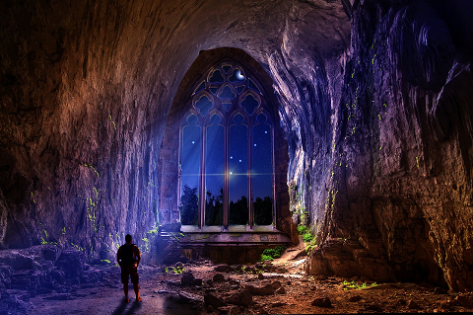“The United States has become a place where entertainers and professional athletes are mistaken for people of importance.” Robert A. Heinlein
Monthly Archives: January 2018
Quote of the day
“I can’t trust any politician who doesn’t read science fiction. How can a human properly weigh the far-future stakes of current policy choices if they don’t cultivate a vivid imagination about our possible futures?” – Geoffrey Miller, associate professor at University of New Mexico
Why we need fantasy
The great struggle of our age is to re-assert our humanity against those institutions that define and treat us as simple automatons. Freudian “Drive-Reduction Theory” attempted to minimize all life into simplistic, mechanical terms. B. F. Skinner went so far as to claim that ALL behavior results from external reinforcement: Reward “good” behavior and punish “bad” behavior, and humans can be conditioned for the better. Utopia, therefore, is just a few conditioning sessions away …
Problem is, living things are inherently complex. Life refuses to be contained within formulas. So when behavioral scientists observed subjects ignoring rewards and spontaneously exploring and experimenting, they had to admit this impulse was internal, rather than external, as Skinner had assumed. A new term arose to describe this activity, as this refreshing article from Medium reports:
Intrinsic motivation refers to the spontaneous tendency “to seek out novelty and challenges, to extend and exercise one’s capacity, to explore, and to learn” (Ryan and Deci, 2000, p.70).
Exercise, games, travel, reading, and even watching TV all satisfy the seeking system to varying levels of effortful operation. On one side of the spectrum someone could climb Mount Everest, and on the other they could browse Netflix. Neuroscientist Jaak Panksepp defines this exploratory behaviour as being driven by the organisms innate seeking system. To reiterate, the anomaly behind seeking is that it provides seemingly very little utilitarian value — it does not fulfil some physiological needs deficit, but we do it anyway. We create our own value from within. Also fascinating, we now know that organisms behave in intrinsically motivated ways even when they are lacking ‘basic’ needs such as food, water, or shelter. How many times have you seen a homeless person reading a book? Do you think they’re practising for a job interview? No, they’re seeking.
The drive to seek, to explore, and experience new things is what attracts us to fantasy. We revolt against the dreary uniformity of globalism by seeking out realms of imagination. That’s why science fiction and fantasy fuel so much popular culture these days. The fantastic is that place where we can once again experience wonder.
Alan Alda and E.O. Wilson Talk on Creativity
E. O. Wilson is one of the most important and influential scientists of our age. His work on the deep foundations of human nature and behavior has inspired many in the arts and sciences – just to name one example, the fruitful new discipline called evolutionary psychology is impacting many areas, including marketing, politics, and education. His latest book, The Origins of Creativity, promises new insights into the creative process.
In the video linked above, Alan Alda interviews E. O. Wilson about the dynamics between the individual and society that inspire creativity:
Alan Alda: The campfire was the place that drew them. Maybe it was just the pleasure of looking at the flames, maybe it was to compete, maybe it was actually toasting marshmallows… but they told stories. That sounds to me like a tremendous engine for empathy.
E.O. Wilson: The important thing is to see what the groups really were when they gathered around the firelight as opposed to the sunlight, and to know what they were really saying, and what was talked about all around.
A.A.: During the day it was mostly workaday things: what are we going to eat, how are we going to get it.
E.O.W.: But what they were doing by the firelight—talking and singing and story-telling—was what made us human.
A.A.: Creativity is tied in with empathy. One way of looking at it is that originality is a group experience, as solitary as it might seem. How do you feel about that?
E.O.W.: The creative process tends to be an individual endeavor, but it often comes about when a very small group—often just two people or three people, are together and they’re toying with a problem. But there has to be a proper apportion of credit within the society that did this individual work.
The thrust of Wilson’s life work is that the division between the arts and sciences are neither natural nor helpful. His latest work promises new pathways between the two, a venture guaranteed to generate lively conversations and further discoveries.


